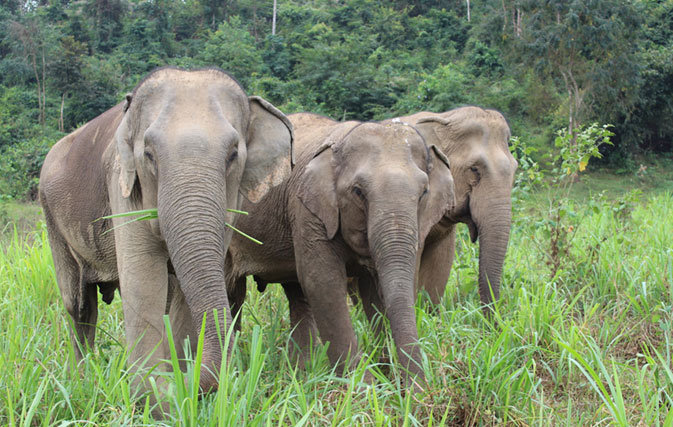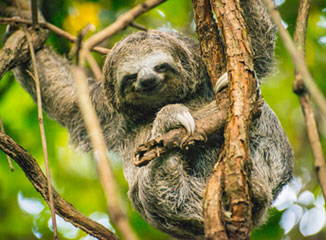TORONTO — World Animal Protection, which has been featured on CTV and Canadian Geographic, is an organization that’s trying to put an end to unethical wildlife tourism.
Hundreds of thousands of wild animals across the globe are taken from their natural habitats, forced into captivity and subjected to abuse, both mentally and physically, in the name of entertainment and profit. Some activities, such as riding an elephant, walking with lions or swimming with dolphins, may not seem cruel to the naked eye but, in fact, they are as the animal is taken from its natural habit and forced to endure mentally and physically painful training in captivity as they learn new, unnatural behaviours to excite tourists. Plus, the confines in which they are kept often do not offer them sufficient space and are rarely kept in an adequately sanitary state.
According to Melissa Matlow, World Animal Protection’s Campaign Director, the organization’s research indicates that due to a lack of awareness and education, many animal lovers are visiting tourist attractions that cause animal suffering and threaten a species’ existence in the wild. Yet, a trend is being witnessed among leading travel companies to move towards a more animal-friendly approach as it’s the right thing to do from both a business and moral perspective.
Travel agents have the opportunity to play a crucial role in the success of such initiatives by promoting animal-friendly attractions in lieu of unfriendly ones, she says. “Tourists are unknowingly causing harm to the animals they love. As public awareness grows, tourists are starting to ask their travel agents more questions. They are looking for responsible travel companies that can provide them with more ethical experiences that align with their values,” said Matlow.
World Animal Protection’s latest campaign, ‘Wildlife Not Entertainers,’ pushes tourism-related companies to protect wild animals from cruelty. For example, it partnered with TripAdvisor after amassing 558,000 signatures requesting the company to stop selling tickets to wildlife attractions that are considered cruel. In addition to ceasing ticket sales for some of the world’s cruelest tourist activities, TripAdvisor has added a new education portal to its website that educates about animal cruelty in tourism. Other travel organizations, like Expedia, have followed suit and removed cruel attractions from their offerings.

Elephants at a sanctuary in Thailand
G Adventures is another travel company that is taking the initiative seriously. “Protecting animal welfare is an essential component of G Adventures’ commitment to responsible travel. We have invested in developing a world-leading Animal Welfare Policy in partnership with World Animal Protection and others,” said Jamie Sweeting, President of Planeterra Foundation and Vice President of Social Enterprise & Sustainability at G Adventures. “At G Adventures, we’re thoroughly committed to animal welfare and aim to provide opportunities for our travellers to responsibly enjoy and experience wildlife in their natural environment. We are big supporters of World Animal Protection and will continue to work with them getting the travel industry involved in safeguarding animals impacted by tourism.”
In 2017, World Animal Protection launched a ‘Wildlife Selfie Code’ campaign that successfully influenced Instagram to educate its users about how posting pictures with wild animals can be supporting animal cruelty behind the scenes. Instagram now has a dedicated advisory page to educate users.
It’s important to note that World Animal Protection is not suggesting that tourists shouldn’t interact with animals at all while on vacation. Instead, it proposes animal-friendly interactions that cause less harm to an individual animal or species. For example, there are ethical elephant-friendly venues that don’t include forced and dangerous interactions with elephants. Or, instead of swimming with dolphins, travellers can see them in the wild from a safe and respectful distance with a responsible dolphin-watch tour company. For more information see WorldAnimalProtection.ca.
